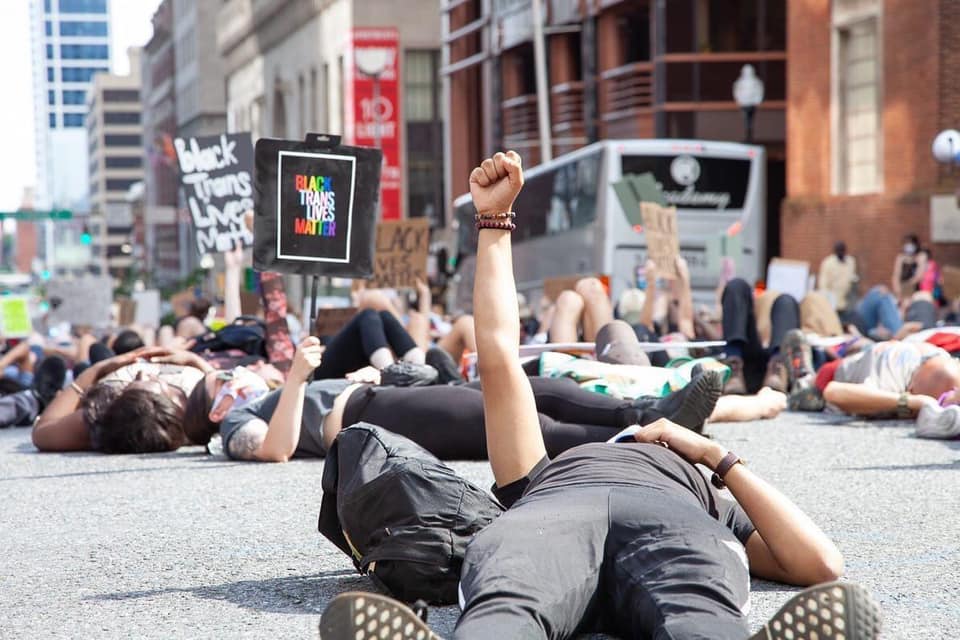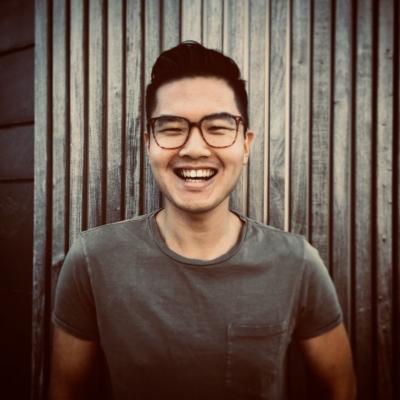
Occupying a three-story brick rowhouse on the corner of Greenmount Avenue and East 25th Street, Baltimore Safe Haven is exactly what it appears to be from the outside—a family home.
Like any homey space, the headquarters for the Baltimore nonprofit—dedicated to protecting the most vulnerable of the city’s LGBTQ community through its range of programs—has couches placed in front of a TV, a vacuum leaning against the wall, breakfast cereals sitting on top of the fridge, a white board dividing up house chores for youth sheltering there, and the smell of slow-simmering chicken permeating throughout the space.
“Survival mode is a term I use to refer to my people,” says Iya Dammons, founder and executive director of Baltimore Safe Haven, speaking from her experience as a Black transgender woman. “We have to be a family.”
And family members show up for one another. Last June, in the wake of the killing of George Floyd and the Black Lives Matter demonstrations that broke out across the nation, Baltimore Safe Haven organized the city’s first-ever Black Trans Lives Matter March, drawing hundreds to rally for vulnerable transgender people of color. A powerful photo from the inaugural event, captured by local artist Devin Allen, made the June 2020 cover of Time magazine.
This Saturday, July 24, the march will return for its second year, stepping off from City Hall at 1 p.m. It’s expected to be attended by local leaders including Mayor Brandon Scott and city councilmen Zeke Cohen and Kristerfer Burnett.
“My message to the world is to stop killing trans women of color,” says Dammons, sitting next to a big plastic megaphone that will amplify that message, as well as others about creating systemic change in the city, this weekend.
It’s a call to action that urgently needs to be heard. In 2020, 44 transgender or gender non-conforming people lost their lives to violence in the U.S.—the majority of the victims being Black and Latinx transgender women. This year, at least two trans women—Kim Wirtz and Danika “Danny” Henson—were reported to be killed in Baltimore.
And for those in the local LGBTQ community, marching for equality and justice is not just chanting support slogans at a Saturday-afternoon gathering, but rather, a representation of their lifelong mission.
Nicole Wells, Baltimore Safe Haven’s Latinx affairs coordinator, thinks of the march as a way to boost trans voices. Her primary job is to serve the city’s Latinx LGBTQ community—a population that not only faces discrimination, but also experiences immigration challenges, cultural differences, and language barriers. “Some nights I can’t sleep,” she says. “I just think about how I can serve the community.”
Arielle Stewart, who works as a harm-reduction specialist for Baltimore Safe Haven—where she spearheads programs that provide resources such as clean needles and condoms—shares the same passion. By marching down the street with transgender people of color, she wants to tell the world, “We are here to stay.”
For chief of staff Melisa Deveraux, the “Jill of All Trades” for Baltimore Safe Haven, the march this weekend is to honor trans lives lost. At 27, Deveraux has lost many of her transgender “sisters and daughters” to violence, suicide, and what she calls “the odds that stack against us.”
“I buried girls and I shouldn’t have,” says Deveraux. “It’s important to honor the lives and deaths of Black trans people and the legacy they have left behind.”
Adds Baltimore Safe Haven’s HIV program director Tashi-Kali M. Acket: “The march is about freedom for all. When we say Black lives matter, we mean all Black lives matter.” Acket, 33, is a Black veteran who was discharged from the military for being a lesbian woman.
Jasmine Lynn Tetlow, the organization’s case manager who takes care of its residents’ legal matters—from name changes to obtaining social security—has also faced her share of adversity. Tetlow was incarcerated for 23 years and taught herself law in prison. Now, she is certified paralegal in the state of Maryland.
For Tetlow, who is white, the upcoming march is about showing solidarity: “It’s about being there for one another,” she says. “I will not stand in front of you or behind you, I’ll stand right next to you.”
